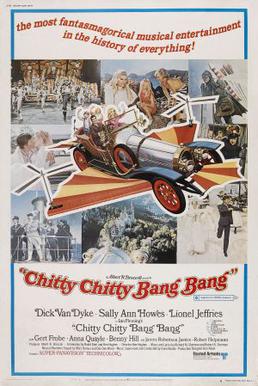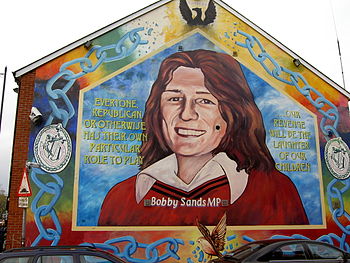I've posted in times past on
how to write a book. I've posted about
how to edit a book - and most certainly
how to publish a book, as well as
my own booky journey. And I've
posted a lot about book marketing. I've probably posted about how to murder a publisher, too.
But I've never talked about how you actually
start a book. You know, how you sort of decide you want to do it then knuckle down and actually get on with it. That moment when you realise, 'Here I am. I'm actually doing this. I'm writing a book!' is something else. But how do you, you know,
get there?
And so @dollz87 on Twitter made a good point today. It's all very well talking about
this here Emirates Airline Festival of Literature 2016 'How to get your book published' session wot I'm taking part in, but how DO you stop
talking about writing a book and actually
start writing a book?
For myself, I had a couple of false starts. I most certainly had not the faintest idea of what writing a book entails. It's probably lucky I didn't, because I'd probably have found something more destructive and less intelligent to do instead. My first book 'Space' started with me writing a scene set outside the Pompidou Centre in Paris. I had a character, René the Horse, in mind. I wrote about 1,500 words and then the file sat on my
Toshiba T1600 (showing my age, but it was one flash puppy of a PC to own back in those days) for years as it rotted in my brother in law's attic. It's still there, for all I know...
When I eventually decided to write a book, I sort of had René in mind, but I had to get from the start of a book over to him in Paris. I dreamed up the idea of an auto-manifesting chicken and started writing...
The chicken appeared on the kitchen worktop with a percussive ‘pop’, interrupting Ben Jonson’s rummage in the fridge for something to eat before afternoon surgery. There was little on offer: stale bread, no butter and a pot of slightly mouldy jam. Scanning the kitchen for the source of the noise, Ben found himself looking at a particularly magnificent roasted chicken on a ceramic dish. It was occupying a space that had previously contained neither chicken nor dish.
A soft hissing sound fizzled into silence. The chicken was plump, still warm and its rich, savoury fragrance filled the air. Ben’s mouth pricked with saliva. He’d eaten nothing since yesterday lunchtime and now he was looking at a glistening, freshly roasted chicken.
Licking his lips, partly from animal lust and partly from apprehension, Ben scanned the room. Just a kitchen. He looked up. Just a kitchen ceiling.
The disconnect overwhelmed Ben’s response to sudden bounty. He felt like a laboratory mouse: If you press this button, food appears. His mind raced, grasping for explanations like a lunatic reaching for butterflies. This was wrong. The chicken had failed to follow due process. Chickens are born in hatcheries, raised in farms. De-beaked, plucked, dipped, shocked, slashed, racked, packed and stacked, bagged, bought, stored, stuffed, cooked and scoffed. They know their place, do chickens: they’re food. Except he hadn’t bought this chicken, and he hadn’t cooked this chicken. This was new chicken. Inexplicable chicken. Chicken á la quiz. He reached across to the oven and opened the door. It was cold.
And so I was away. 100,000 words later, I leaned back with a sigh of satisfaction and decided I deserved a Martini.
Space was written and I could now unleash my genius on literary London. The rest, as they say, was pants.
But how do you START? I've got news for you. It's really easy. Here's my $1mn super secret writer's tip: just start. Get it down on paper, at least the first few pages. Start writing. Now begin to think about what it is you're building here. Ideally, sketch out the big idea and then break it down into chapters, building your big idea in an outline. Don't stop writing while you're doing this, keep the momentum going. Don't put off writing to do planning, but write as you plan. The further ahead you plan, the better, but don't stop writing, whatever you do.
Start by writing down your opening scene. Don't sweat this too much, it'll likely never make it to the final cut, but make a start. Finish whatever you write in that first session and have a think about where you want to take it next. Start again with the next session and read over what you wrote before, then take up the quill again and write more. Repeat.
Scope out a 'writing time' for yourself. For me, it's first thing in the morning before the office wakens (I spend half an hour thinking in the car and then an hour writing. I'll write in the evenings as well when I can. Morning me leaves notes for evening me. I write on Fridays, too. I'm married to a teacher, so she spends Fridays planning. We're happy enough, both beavering away in our study.). You're looking at giving yourself a daily 1,000 words to write. You don't have to DO this, but have it as a target. 400 well written and considered words that resolve a problem are better than 1,000 sketchy ones that leave you with a problem later on, believe me. But if you end the week 7,000 words to the wise, give yourself a massive pat on the back.
Don't tweet, don't let yourself get distracted. Switch the Internet off. Just concentrate on that story, the big picture one, the scenes you're building and the story you want to tell. Think about things when you're not writing, dream up characters and their backgrounds, their stories and their lives. Steal quirks from people. Keep writing. Every day. Even a few words. Keep writing. Keep writing.
And you'll do it. Trust me, you'll do it. Don't bother with NaNoWriMo type deadlines, that's a sure-fire route to a rubbish book and a huge editing job (an editor friend dreads the end of NaNoWriMo because he knows what sort of MSs are going to start dropping on him). Stick to your 1,000 words a day as best you can and just plug away at it.
Believe me. The second you've started, you're on the way to finishing. By the fourth or fifth second you're committed. A couple of minutes in, you're carving your way to success. A few days in and you're a writer, writing. Don't worry too much about all that show don't tell sort of stuff (
maybe have a read of this here handy post), or even worrying about
POV and other writing techniques for now (there's time for that later), but focus on telling your story.
Once you've given those first few days to it, you're on the way to redemption. It's just like giving up smoking, but in reverse. And that's how I did it: I gave up smoking and my novel became my new obsession.
Just remember the golden rule:
start now. Seriously. Right now. Close this window and open Word, take a deep breath and just write something. There. You've started. You can worry about the rest later. If you need a shoulder to cry on, it's @alexandermcnabb. But NOT in your writing time, hear me?
Good luck!


















